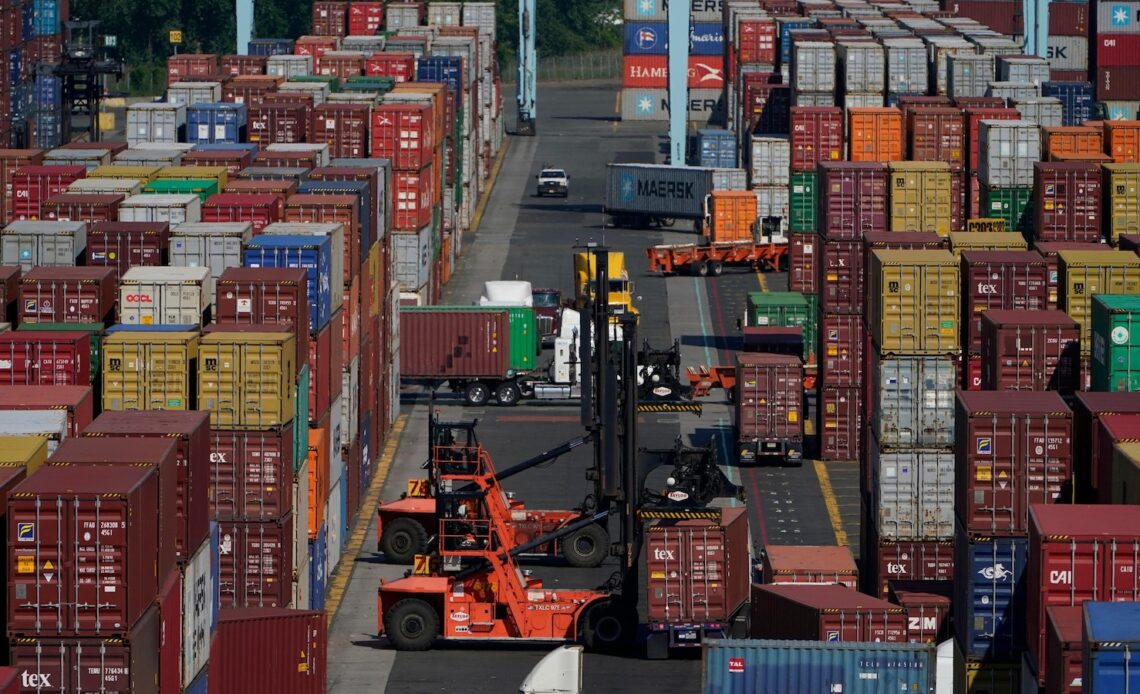NEW YORK — With a strike deadline looming, the union for 45,000 dockworkers and the group representing East and Gulf Coast ports have exchanged wage offers, leaving a ray of hope that a deal can be reached without a major work stoppage.
In a statement, the U.S. Maritime Alliance, which represents 36 ports from Maine to Texas, said that both sides have moved from their previous positions. The alliance said it also asked the union to extend the current contract.
The International Longshoremen’s Association is threatening to strike at 12:01 a.m. Tuesday in a move that could silence ports that handle about half the ship cargo coming in and going out of the U.S.
A message was left Monday evening seeking comment from the union.
“We are hopeful that this could allow us to fully resume collective bargaining around the other outstanding issues in an effort to reach an agreement,” the alliance statement said.
The Alliance said its latest offer would increases wages by nearly 50% over the six-year contract, and triple employer contributions to retirement plans. The offer also would strengthen health care options and keep current language that limits automation.
The union has demanded 77% pay raises over six years to help deal with inflation. Many of the ILA workers can make over $200,000 per year, but the union says they must work large amounts of overtime to reach that figure.
The two sides had not held formal negotiations since June, and a strike appeared imminent. In a statement Monday morning, the union said the ports had refused its demands for a fair contract and the alliance seemed intent on a strike. The alliance has said it was willing to bargain.
A work stoppage would significantly snarl the nation’s supply chain, potentially leading to higher prices and delays in goods reaching households and businesses if it drags on for weeks.
If drawn out, the strike would force businesses to pay shippers for delays and cause some goods to arrive late for peak holiday shopping season — potentially impacting delivery of anything from toys or artificial Christmas trees, to cars, coffee and fruit.
A strike could have an almost immediate impact on supplies of perishable imports like bananas, for example. The ports that could be affected by the strike handle 3.8 million metric tons of bananas each year, or 75% of the nation’s supply, according to the American Farm Bureau Federation.
Americans could also face higher prices as retailers feel the supply squeeze.
“If the…
Click Here to Read the Full Original Article at ABC News: Business…

